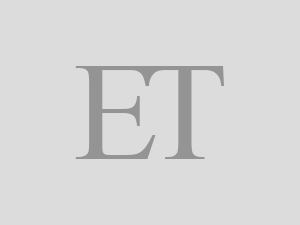
Omega has two main shareholders—Goldman Sachs Asset Management, which holds about 60%, and Everstone Capital, an Asia-focused PE fund that has a 33% stake. The management team owns around 7%. A leading revenue cycle management (RCM) player, the company has 35,000 employees at 14 delivery centres in the US, India, Colombia and the Philippines.
Goldman Sachs to pare stake
OTPP is looking to invest about $700-800 million to buy out Everstone completely. Goldman will pare its stake to ensure that it and OTPP become the new co-owners of the business. A formal announcement is expected within the next fortnight. Competing with OTPP is Berkshire Partners, the other serious contender in the fray, added people aware of the matter. Goldman Sachs declined to comment. Omega, OTPP, Berkshire and Everstone didn’t respond to queries. Goldman Sachs and Triple Tree are the advisors for the sale process, said sources.
Founded by Gopi Natarajan and Anurag Mehta in 2003 in the US, Omega provides services in the areas of medical coding, patient interface, claims management & billing, accounts receivable (AR) management, scheduling & registration, insurance eligibility & benefits verification to hospitals, healthcare providers, insurers and pharmaceutical companies across the globe.
It has expanded its footprint through six acquisitions since 2017, three of them in 2022, spanning a diverse footprint that includes Brazil and the US, according to a Tracxn report. Its average deal size is around $125 million.
According to Tracxn data, Omega posted a revenue of Rs 1,662 crore in FY24 with a profit of Rs 165 crore. In 2022, Omega Healthcare acquired ApexonHealth, an AI and automation-based RCM and payor solutions provider, and Vasta Global, a provider of data management and analytics for the oncology market. In the same year, it also took over Reventics, a Denver-based clinical documentation improvement and RCM solutions provider.
Canada’s leading investor OTPP has a presence in the Indian healthcare industry through its $300 million acquisition of Sahyadri Hospitals Group, a leading hospital chain in western India from Everstone Capital in 2022. OTPP also acquired Mahindra Susten’s renewable energy assets in India. OTPP had net assets of $178 billion on June 30.
Several PE firms have zeroed in on this sector. Some of the biggest buyout groups such as Blackstone, Carlyle and Hillhouse Investment are competing to acquire a majority stake in Access Healthcare, ET reported early December. Texas-headquartered Access Healthcare has been up for sale at a $1.5 billion valuation.
In September, Swedish fund EQT Partners acquired GeBBS Healthcare Solutions, a global provider of RCM services and risk-adjustment solutions, from homegrown PE fund ChrysCapital for about $860 million. EQT, formerly Baring PE Asia, also owns AGS Health, another medical RCM company. AGS, acquired in 2019 for $320 million, is on the block too at a valuation of $1-1.2 billion.
Recently, TA Associates bought a majority stake in Bengaluru and US-based RCM services provider Vee Healthtek for $250 million (Rs 2,100 crore) from its promoters, the Chennai-based Valliappa family. In May, KKR acquired a significant minority stake in Infinx Services, a US-based healthcare revenue cycle solutions provider, for $150 million.
The continuous rise in healthcare costs has increased the urgency of finding effective cost-reduction strategies. Organisations are increasingly turning to BPOs to streamline processes, cut unnecessary expenses and navigate the complex landscape of healthcare expenditure, experts said. The increasing complexity of healthcare billing and reimbursement regulations, the growing focus on improving patient experience and the need for efficient and cost-effective revenue cycle management processes, are some of the key factors driving the market, according to a study by Precedence Statistics. According to a recent BCC Research study, the global healthcare BPO market is estimated to expand from $152 billion in 2022 to $259 billion by 2028, clocking a compound annual growth rate (CAGR) of 9.7%.



































